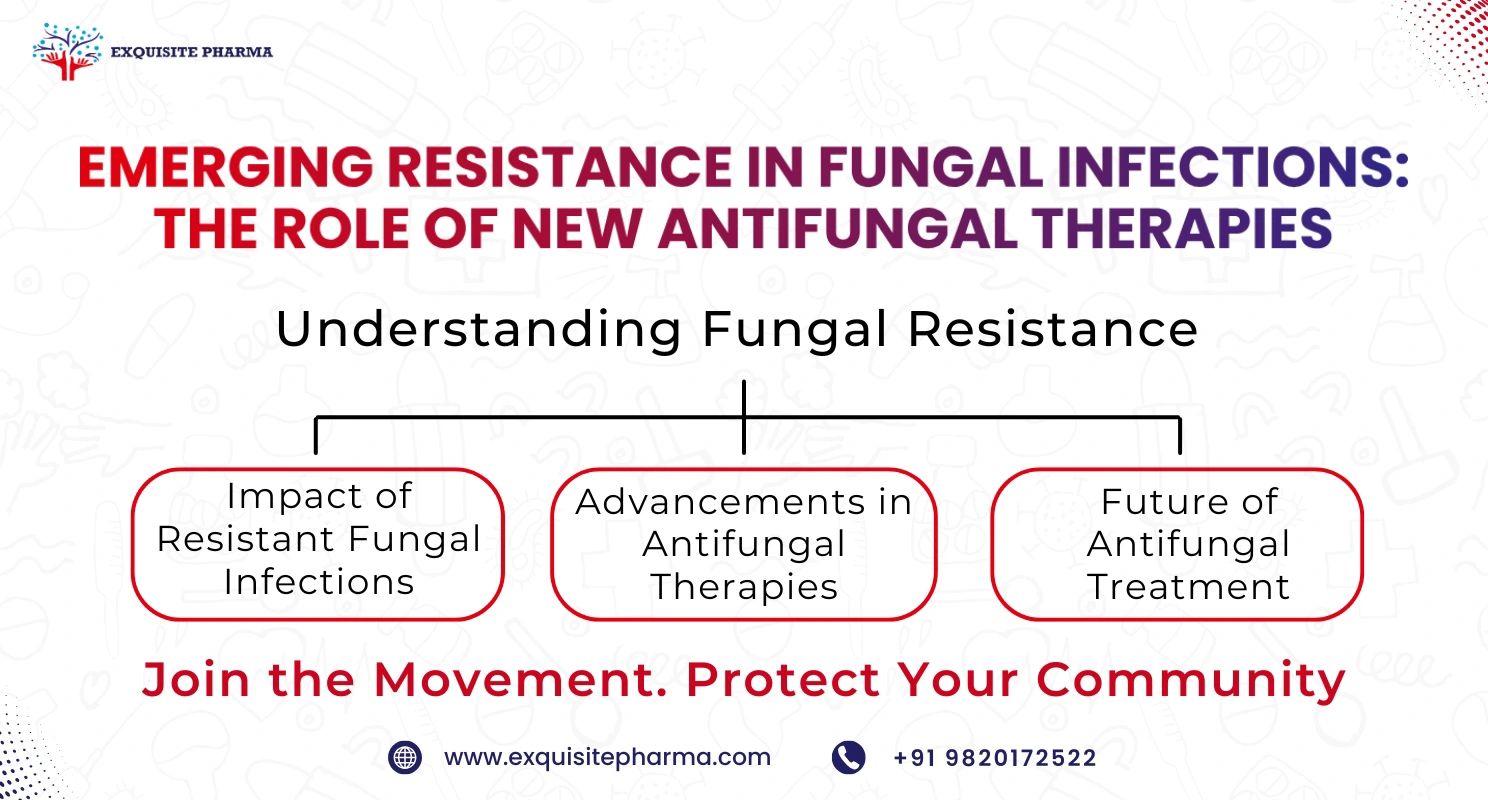Emerging Resistance in Fungal Infections: The Role of New Antifungal Therapies
Fungal infections have been a growing concern in healthcare, with increasing cases of drug resistance posing significant challenges. As fungi evolve, they become less responsive to conventional treatments, making infections harder to control and increasing the risk of severe health outcomes. This alarming trend underscores the urgent need for new antifungal therapies that can effectively combat resistant strains.
Understanding Fungal Resistance :
Fungal resistance occurs when fungi mutate and adapt to withstand the effects of antifungal drugs. This resistance can develop due to various factors, including overuse or misuse of antifungal medications, prolonged treatment durations, and the natural ability of fungi to evolve rapidly. As a result, traditional therapies may become ineffective, leading to recurrent and persistent infections.
The Impact of Resistant Fungal Infections :
Resistant fungal infections pose a serious threat to public health, particularly for individuals with weakened immune systems, such as those undergoing chemotherapy or organ transplants. These infections can lead to longer hospital stays, increased healthcare costs, and higher mortality rates. Therefore, addressing fungal resistance is crucial for improving patient outcomes and reducing the burden on healthcare systems.
Advancements in Antifungal Therapies :
To tackle emerging resistance, researchers and pharmaceutical companies are focusing on developing new antifungal therapies. These innovative treatments aim to target resistant strains more effectively, offering hope for better management of fungal infections. Some of the promising advancements include:
-
Novel Drug Classes: Researchers are exploring new classes of antifungal drugs that work differently from existing medications, potentially overcoming resistance mechanisms.
-
Combination Therapies: Combining different antifungal agents can enhance efficacy and reduce the likelihood of resistance development.
-
Targeted Approaches: Advances in molecular biology enable the development of therapies that specifically target the cellular mechanisms of resistant fungi, minimizing damage to human cells.
The Future of Antifungal Treatment :
The development of new antifungal therapies is a critical step in combating resistant fungal infections. Continued research, innovation, and collaboration between healthcare providers and the pharmaceutical industry are essential to ensure these therapies are safe, effective, and accessible to those in need.
At ExquisitePharma, we are at the forefront of pharmaceutical innovation, dedicated to developing high-quality therapies that address emerging health challenges. Learn more about our commitment to improving global health and our range of pharmaceutical solutions at Exquisite Pharma.
Exquisite Pharma

